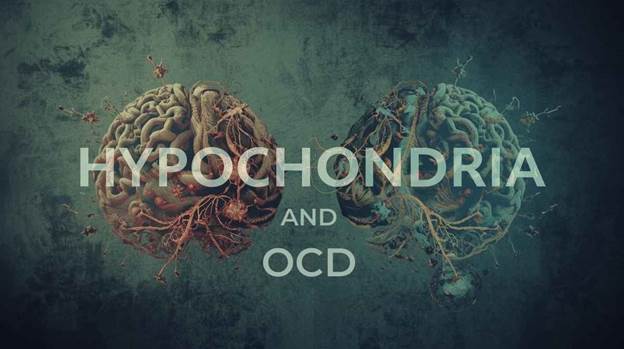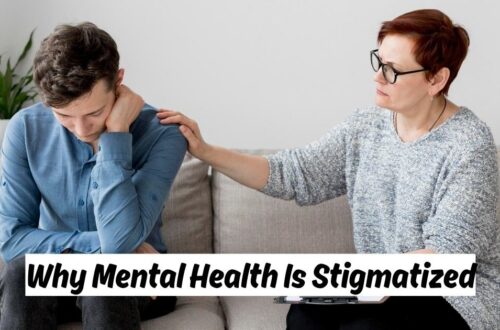Many people struggle with hypochondria and OCD, two conditions that share similar features yet differ in important ways. Worrying about health is natural, but when fear and obsessive thoughts become overwhelming, it may indicate a deeper psychological challenge. Hypochondria, now more commonly called illness anxiety disorder, involves excessive worry about having a serious illness despite little or no medical evidence. Obsessive-compulsive disorder (OCD) is characterized by intrusive thoughts and repetitive behaviors aimed at reducing anxiety. When combined, hypochondria and OCD can create a cycle of constant checking, reassurance seeking, and emotional distress.
Table of Contents
This article explores definitions, history, causes, symptoms, challenges, and management strategies for these conditions, offering insight for individuals and caregivers alike.
Hypochondria and OCD: Defining the Conditions
What is Hypochondria?
Hypochondria, or illness anxiety disorder, involves a persistent preoccupation with health. A person may interpret minor sensations like a headache or fatigue as signs of a life-threatening condition. Despite reassurance from doctors, the fear remains. This leads to frequent medical visits, online symptom checking, and emotional distress.
What is OCD?
Obsessive-compulsive disorder involves intrusive, unwanted thoughts (obsessions) and repetitive behaviors (compulsions). A person may feel compelled to wash hands excessively, check doors repeatedly, or mentally review actions to relieve anxiety. OCD goes beyond simple worry it creates patterns that interfere with daily life.
The Overlap of Hypochondria and OCD
When discussing hypochondria and OCD, it’s important to note their similarities. Both involve obsessive thinking, heightened anxiety, and repetitive behaviors. For example, someone with hypochondria may repeatedly research symptoms, much like someone with OCD might repeatedly check locks. However, their focus differs hypochondria centers on health fears, while OCD may involve a range of intrusive thoughts beyond illness.
A Brief History of Hypochondria and OCD
The term hypochondria dates back to ancient Greece, where physicians linked unexplained physical symptoms to disturbances in the abdominal region. Over time, the concept evolved into a psychological condition characterized by excessive worry about illness.
OCD has also been recognized for centuries, once described as “religious scruples” in the 1600s. In the 20th century, psychologists identified OCD as a disorder involving intrusive thoughts and compulsive rituals, often unrelated to health. Today, both hypochondria and OCD are understood as anxiety-related conditions that may overlap in their expression.
Symptoms of Hypochondria and OCD
Recognizing the symptoms of hypochondria and OCD can help with early support and treatment.
Symptoms of Hypochondria
- Persistent worry about serious illness despite normal test results
- Constant self-examination or body scanning for signs of disease
- Avoidance of hospitals or, alternatively, excessive doctor visits
- Heightened anxiety triggered by health-related news or conversations
Symptoms of OCD
- Intrusive, distressing thoughts unrelated to reality
- Compulsive rituals such as cleaning, checking, or counting
- Difficulty controlling repetitive actions despite awareness they are irrational
- Emotional distress when rituals cannot be performed
While these symptoms differ, people with hypochondria and OCD often share behaviors like reassurance seeking, excessive research, and high anxiety levels.
Causes of Hypochondria and OCD
The development of hypochondria and OCD is influenced by multiple factors:
- Genetics: Family history of anxiety disorders may increase risk.
- Neurobiology: Imbalances in brain chemicals like serotonin play a role.
- Personality Traits: Perfectionism, sensitivity, or heightened vigilance may contribute.
- Life Experiences: Trauma, illness in the family, or exposure to health scares can trigger persistent fears.
Understanding these causes highlights the importance of early intervention and holistic treatment.

Real-World Examples
- A young professional with hypochondria constantly checks moles, fearing skin cancer, even after multiple clear dermatology visits.
- A student with OCD spends hours each night checking locks and appliances, leading to poor sleep and academic struggles.
- Someone with both conditions may excessively Google symptoms, seek repeated reassurance, and perform rituals to prevent illness, creating a cycle of exhaustion.
These examples show how hypochondria and OCD can disrupt everyday life in unique but overlapping ways.
Challenges in Managing Hypochondria and OCD
One of the greatest challenges is stigma. Many dismiss these conditions as “overreacting” or “being paranoid,” which prevents individuals from seeking help. Additionally, excessive reassurance from family or doctors may unintentionally reinforce the cycle. Access to mental health care is also limited in many areas, making management even harder.
Coping Strategies for Hypochondria and OCD
Treatment for hypochondria and OCD often includes a combination of therapy, medication, and self-care practices.
Professional Approaches
- Cognitive-behavioral therapy (CBT): Helps reframe irrational thoughts and reduce compulsive behaviors.
- Exposure and response prevention (ERP): Gradually exposes individuals to feared situations without allowing compulsions, reducing anxiety over time.
- Medication: Selective serotonin reuptake inhibitors (SSRIs) are often prescribed to manage anxiety and obsessive thinking.
Self-Help Strategies
- Limit excessive internet symptom searches
- Practice mindfulness and grounding exercises
- Develop healthy routines with balanced sleep, nutrition, and exercise
- Seek support from friends, family, or peer groups
These approaches provide a roadmap for reducing distress and regaining control.
Benefits of Addressing Hypochondria and OCD Early
Taking action early can reduce long-term suffering. Benefits include:
- Improved mental and emotional well-being
- Reduced healthcare costs from unnecessary medical tests
- Stronger relationships due to less reassurance-seeking strain
- Greater productivity and focus in daily activities
- Empowerment through knowledge and coping tools
Conclusion
The relationship between hypochondria and OCD reveals how closely health anxiety and obsessive behaviors are linked. While hypochondria focuses on fears of illness and OCD spans broader intrusive thoughts, both share cycles of anxiety and reassurance seeking. Early recognition, therapy, and self-care can break these cycles and restore balance. By addressing these conditions with compassion and effective strategies, individuals can move toward healthier and more fulfilling lives.





